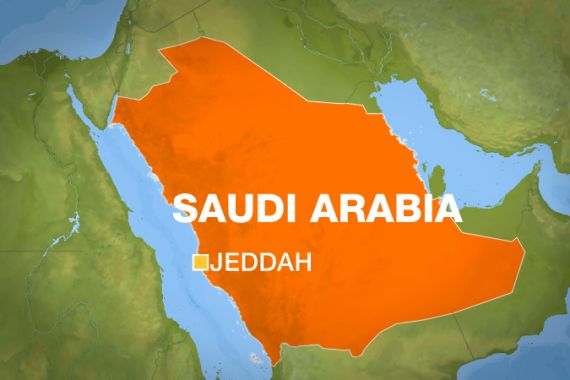Saudi rights activist accused of apostasy
Raef Badawi, jailed for setting up “liberal” network and insulting Islam, could face death penalty.

A judge in Saudi Arabia has recommended that a local activist be tried for apostasy, a charge that could carry the death penalty, in what rights groups say is the latest measure in the kingdom’s ongoing crackdown on dissent.
A judge remanded 35-year-old Raef Badawi to the General Court on charges of apostasy on Wednesday, Badawi’s lawyer Waleed Abulkhair told the AFP news agency.
Badawi was arrested in June last year in the Red Sea city of Jeddah, and later sentenced to seven years in jail and 600 lashes for setting up a “liberal” network and for allegedly insulting Islam.
The network that he co-founded with female rights activist Suad al-Shammari had declared May 7, 2012 a “day of liberalism”, and called for an end to the domination of religion over public life in Saudi Arabia.
After Badawi’s original sentence, the appeals court sent the case back to the court of first instance, where a newly-appointed judge remanded it to the General Court. The judge said his lower court was not qualified to deal with the case, Abulkhair explained.
Badawi’s wife, Ensaf Haidar, told online news website Sabq.org that “the new judge… demanded the death penalty” for her husband.
Hala al-Dosari, a Saudi female writer and activist, told Al Jazeera that what Badawi did was risky and made him a susceptible target.
“Badawi’s case has a lot of complicated dimensions but he was fighting a battle alone. Activists should really decide what type of fight they pick. Should I secure my own freedom and risk picking a fight against a big religious community?
“What he did was that he campaigned against religion and this made him a very easy target by the Saudi government,” al-Dosari added.
Human rights groups have accused Saudi Arabia of quietly intensifying its crackdown on dissent in 2013, with several democracy activists arrested and intimidation widespread in the conservative kingdom.
The United Nations High Commissioner for Human Rights voiced “deep concern” last weekend about what it said was the “intimidation and prosecution of individuals in Saudi Arabia for exercising certain fundamental freedoms”.
New York-based Human Rights Watch also released a report last week accusing Saudi authorities of having redoubled their harassment of activists since early 2011.